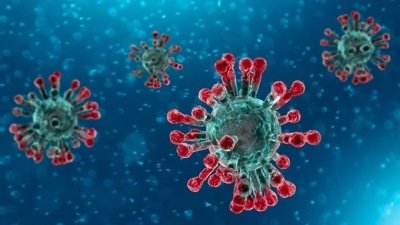New Delhi, May 6 (IANS) In the rush to win the COVID-19 vaccine race, researchers must not break defined guidelines and processes involved in developing a vaccine, as finding shortcuts may do more harm than good in the long run, Indian health experts warned on Wednesday.
Nearly four decades and 32 million deaths later, the world is still waiting for an HIV vaccine. An effective vaccine for dengue fever, which infects as many as 400,000 people a year according to the World Health Organisation (WHO), has eluded scientists for decades.
A clinical trial for an HIV vaccine was discontinued early this year since the vaccine was not found to prevent infections of human immunodeficiency virus, the virus that causes AIDS.
Currently, there are over 100 vaccine candidates at different stages of trials for SARS CoV-2 virus but there is always uncertainty with the vaccine development.
“In the end, the vaccine has to be safe for public use and also elicit protective immune response. We are hopeful but there is no assurance that a vaccine can be successfully developed for every virus. We will have to adapt and live with this new coronavirus,” said doctor Navin Kumar, Head of Clinical Microbiologist and Infection Prevention, Manipal Hospital, New Delhi.
We keep hearing about sporadic claims coming from various countries about a new vaccine candidate that has been successful, a drug combo that is working in critically-ill patients, or old vaccines that are found to be useful, but nothing is proven yet on a mass scale.
“The destination still seems to be far away. The reason is that the vaccine needs to be safe and effective. The regulatory pathway for the vaccine to be available is, thus, meant to be slow, deliberate, reflective, data-rich, data-informed, and peer-reviewed,” said doctor Anil Handoo, MD, Senior Director Hospital Lab Services at the BLK Super Speciality Hospital.
Shortcuts can run humanity into bigger problems.
“Also, there is a possibility that we might need to return to a new normal without the availability of a vaccine. And, perhaps, ‘herd immunity’ shall eventually help,” Handoo told IANS.
Herd immunity is a form of indirect protection from infectious disease that occurs when a large percentage of a population has become immune to an infection, whether through previous infections or vaccination, thereby providing a measure of protection for individuals who are not immune.
According to doctor Supradip Ghosh, Director and Head, Department of Critical Care Medicine, Fortis Escorts Hospital, Faridabad, scientific facts are still emerging and we are not quite sure whether herd immunity will be impactful or not.
“There are reports of recovered patients getting reinfected with SARS CoV2. We are yet to answer whether natural infection with the virus gives full protection from reinfection or not,” Ghosh told IANS.
It is time for us to accept coronavirus as the new normal and start living with it.
“We must take precaution against the possible spread of the disease. Today it is coronavirus, tomorrow it may be something else, some of them may be genetically engineered. Life must move on,” Ghosh added.
Virus testing and contact tracing is going to become part of our life in the short term, the experts noted.
–IANS
bu/na/dpb
